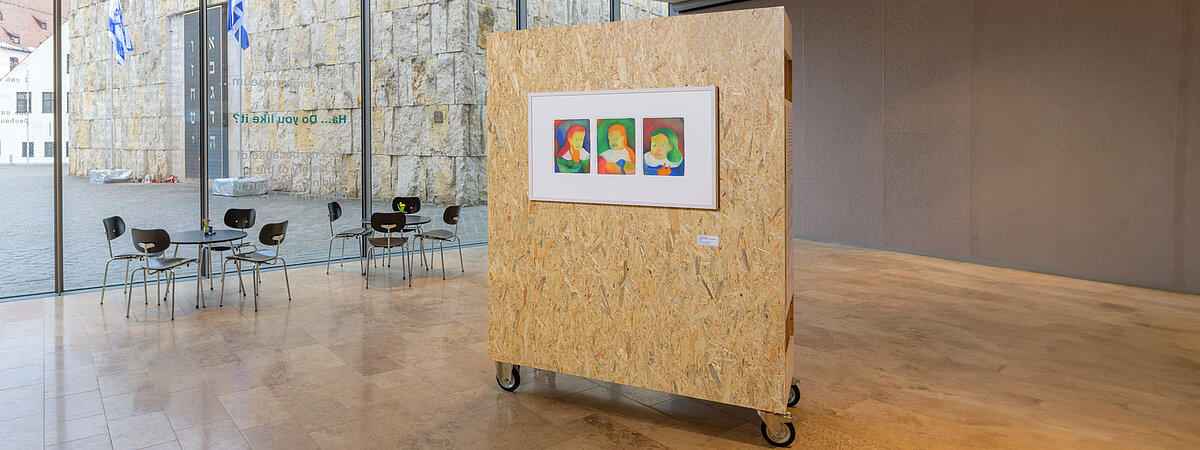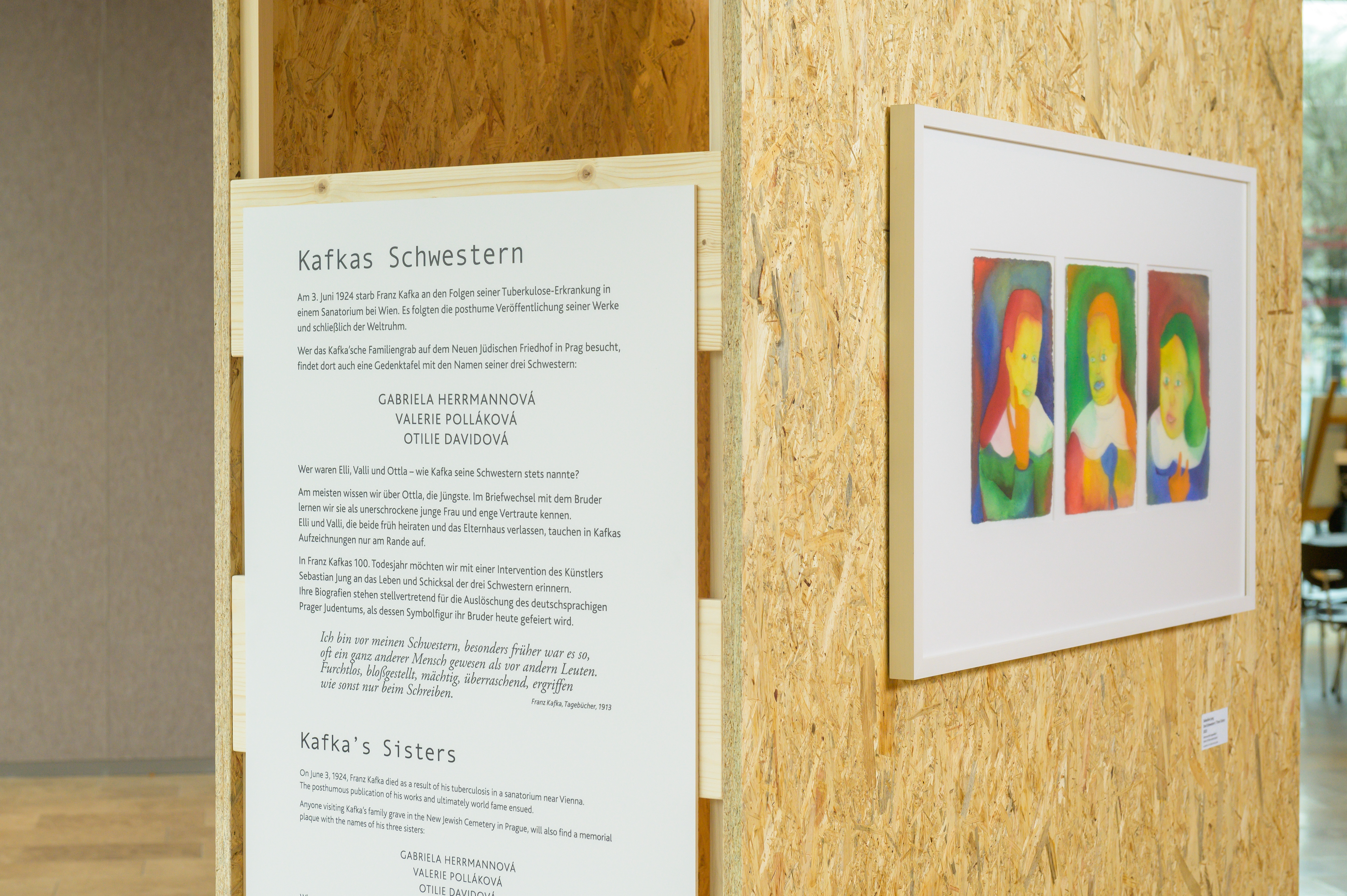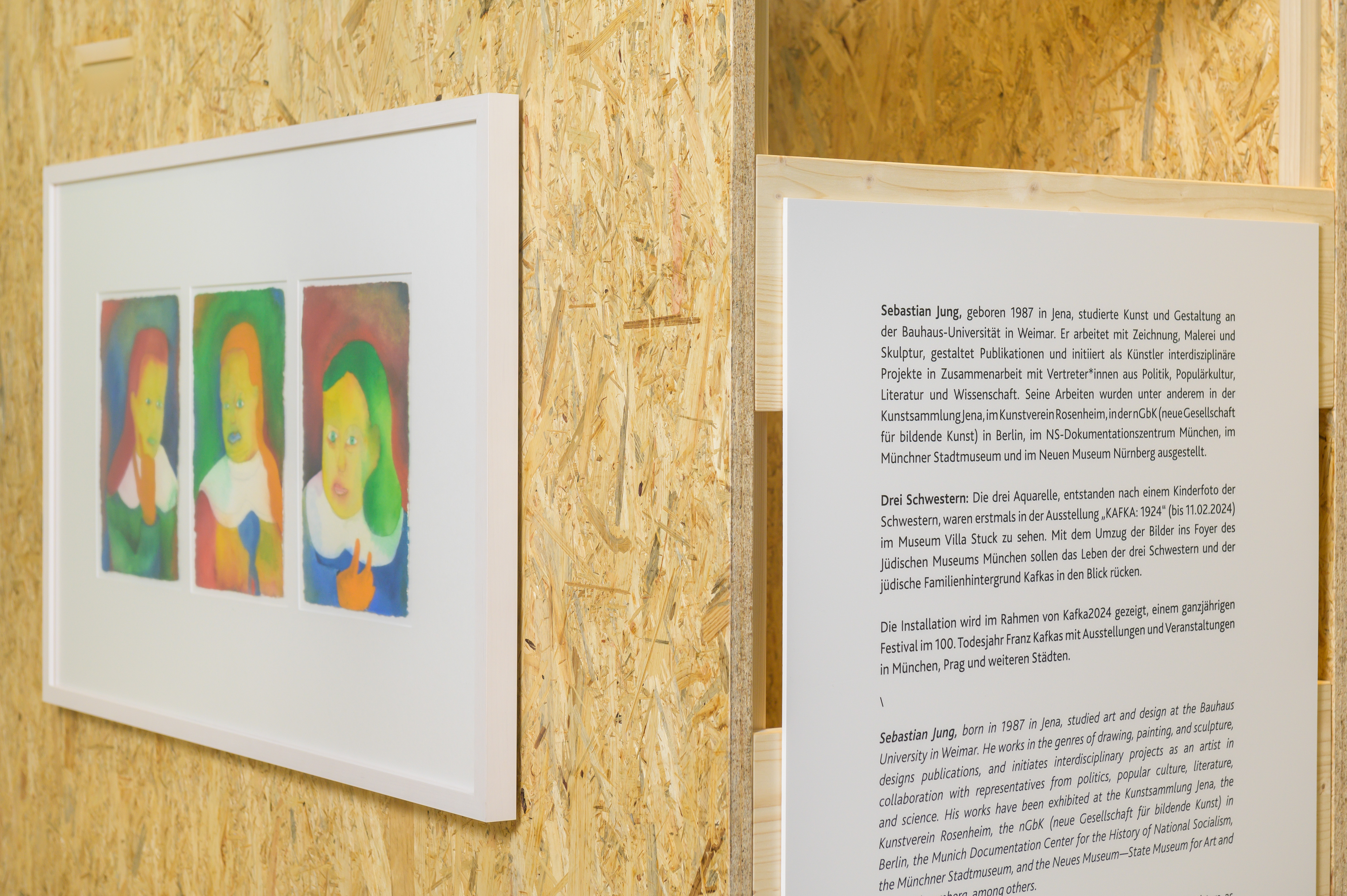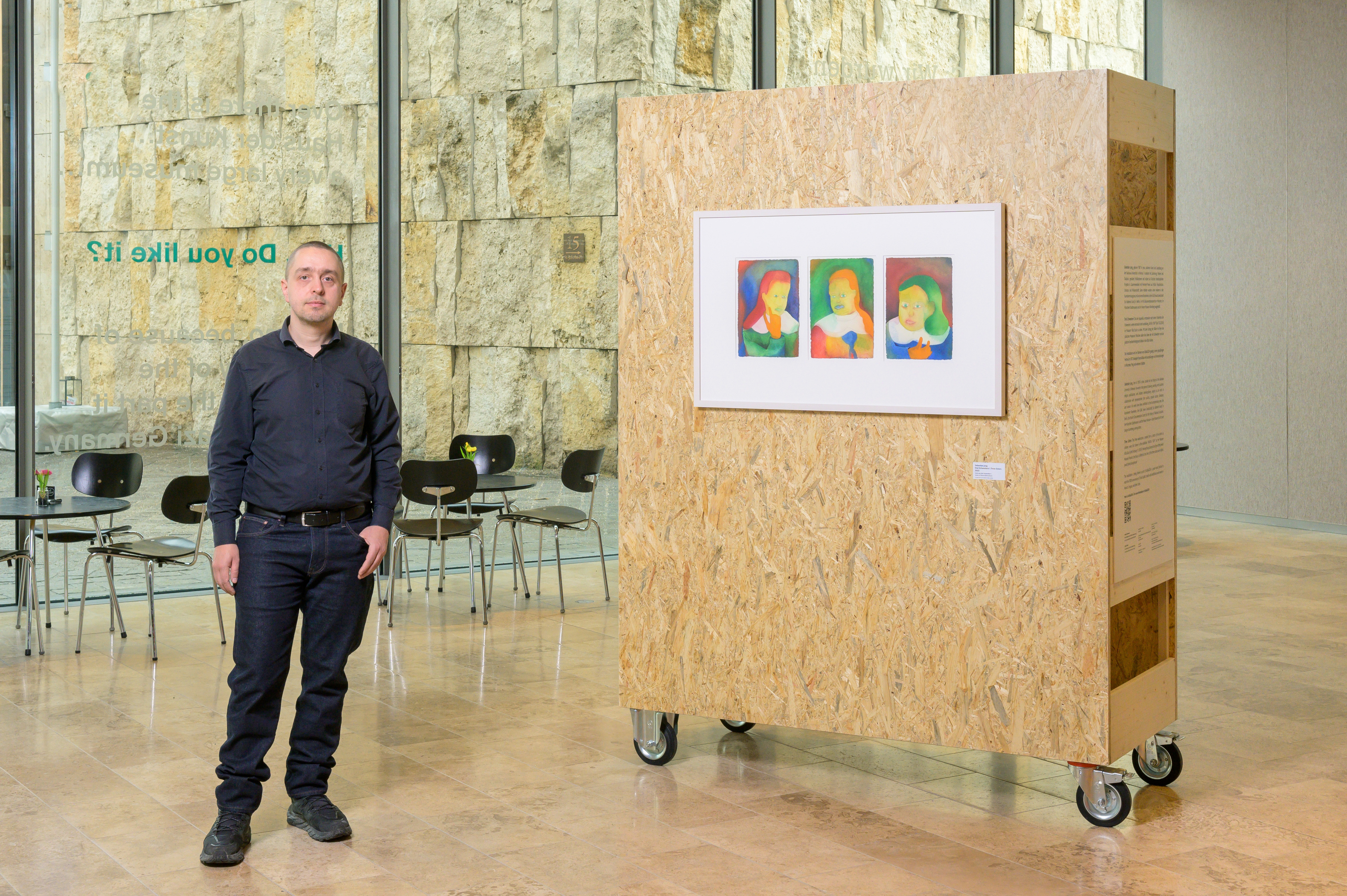January 18 - September 29, 2024 | Installation in the foyer | Free admission
KAFKA'S SISTERS
An installation by the artist Sebastian Jung in the foyer of the Jewish Museum Munich as part of the festival KAFKA2024
On June 3, 1924, Franz Kafka died in a sanatorium near Vienna as a result of tuberculosis that he had suffered from for several years. He was buried on June 11 in the New Jewish Cemetery in Prague. The posthumous publication of his works and ultimately world fame ensued. While Franz Kafka’s life is recorded in countless biographies, his three sisters have remained largely in the shadows.
On the 100th anniversary of Franz Kafka’s…
January 18 - September 29, 2024 | Installation in the foyer | Free admission
KAFKA'S SISTERS
An installation by the artist Sebastian Jung in the foyer of the Jewish Museum Munich as part of the festival KAFKA2024
On June 3, 1924, Franz Kafka died in a sanatorium near Vienna as a result of tuberculosis that he had suffered from for several years. He was buried on June 11 in the New Jewish Cemetery in Prague. The posthumous publication of his works and ultimately world fame ensued. While Franz Kafka’s life is recorded in countless biographies, his three sisters have remained largely in the shadows.
On the 100th anniversary of Franz Kafka’s death, an installation by the artist Sebastian Jung at the Jewish Museum Munich commemorates the life and fate of the three sisters:
Gabriele Hermann (1889–1942)
Valerie Pollak (1890–1942)
Ottilie David (1892–1943)
Who were Elli, Valli, and Ottla—as Kafka always called his sisters? The most is known about Ottla, the youngest, who was a close confidant of her brother’s throughout his life. In their correspondence, she comes across as an intrepid young woman who hopes to become professionally independent, considers emigrating to Palestine and finally marries a Czech Catholic against her father’s will. Elli and Valli, who both married and left their parents’ house early, only appear in passing in Kafka’s writings.
In 1941, Elli and Valli and their families were deported to Łódź ghetto. In 1942, they were murdered in Chełmno (Kulmhof) extermination camp. In 1942, Ottla was deported to Theresienstadt where she worked in a children’s home. In 1943, she accompanied Polish-Jewish children deported to the extermination camp in Auschwitz-Birkenau where she was also murdered. The three biographies stand for the extermination of German-speaking Prague Jewry, for which their brother is celebrated today as its symbolic figure.
The watercolors, “Three Sisters”, which form the central point of the installation, were created from a photo of the sisters as children and were first shown in the exhibition “Kafka: 1924” at the Museum Villa Stuck in Munich (until February 11, 2024). Moving the pictures to the foyer of the Jewish Museum Munich, the focus is shifted to the lives of the three sisters and Kafka’s Jewish family background. The installation is being shown as part of “Kafka2024”—a year-round festival to mark the 100th anniversary of Franz Kafka’s death with exhibitions and events in Munich, Prague, and other cities.
The Artist:
Sebastian Jung, born in 1987 in Jena, studied art and design at the Bauhaus University in Weimar. He works in the genres of drawing, painting, and sculpture, designs publications, and initiates interdisciplinary projects as an artist in collaboration with representatives from politics, popular culture, literature, and science. His works have been exhibited in the Kunstsammlung Jena, the Kunstverein Rosenheim, the nGbK (neue Gesellschaft für bildende Kunst) in Berlin, the Munich Documentation Center for the History of National Socialism, the Münchner Stadtmuseum, and the Neues Museum – State Museum for Art and Design Nuremberg, among others.
Curator: Lara Theobalt
What else is going on?
Find out more about our current events and regular guided tours
Teachers & Schools
Are you a teacher and would like to visit our museum with your class(es) or colleagues? Find out more about our individual packages for teachers and school classes.
An exhibition as part of the KAFKA 2024 festival
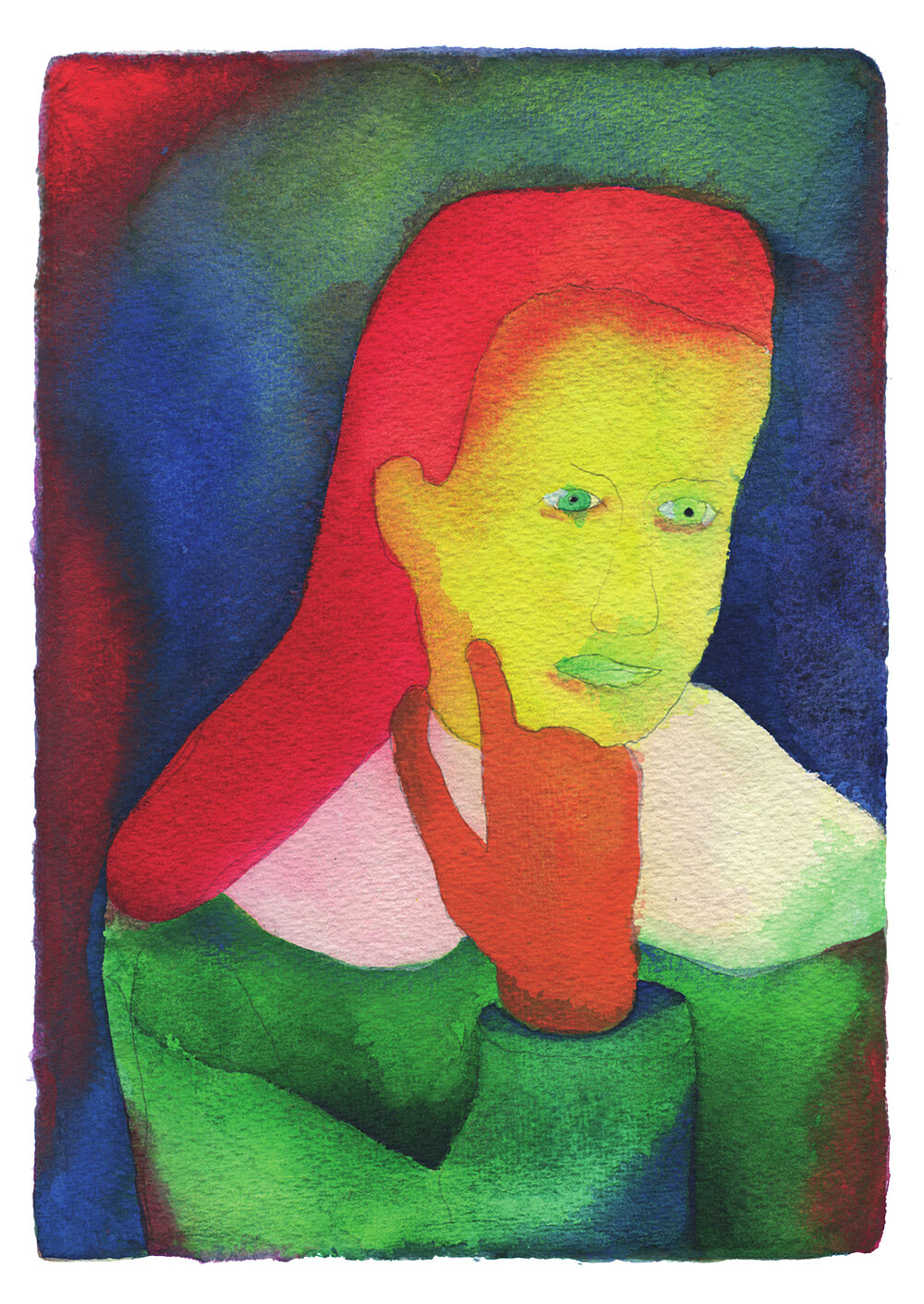
Valerie (Valli)
Geboren: 25. September 1890 in Prag
Ausbildung: Besuch der Volksschule, anschließend Besuch einer deutschsprachigen Privatschule für Mädchen
Heirat: 12. Januar 1913 mit dem kaufmännischen Angestellten Josef Pollak (1882–1942)
Kinder: Marianne (1913–2000) und Lotte (1914–1931)
Deportation: 31. Oktober 1941 gemeinsam mit ihrem Mann in das Getto Łódź, wo sie zeitweise mit Schwester Elli und deren Tochter zusammenwohnt; 10. September 1942 Deportation in das Vernichtungslager Kulmhof (Chełmno); genauer Todestag unbekannt
»Die Schwestern gingen nur zum Teil mit mir. Am glücklichsten in ihrer Stellung zu Dir war Valli. Am nächsten der Mutter stehend, fügte sie sich Dir auch ähnlich, ohne viel Mühe und Schaden.«
Franz Kafka, Brief an den Vater, 1919
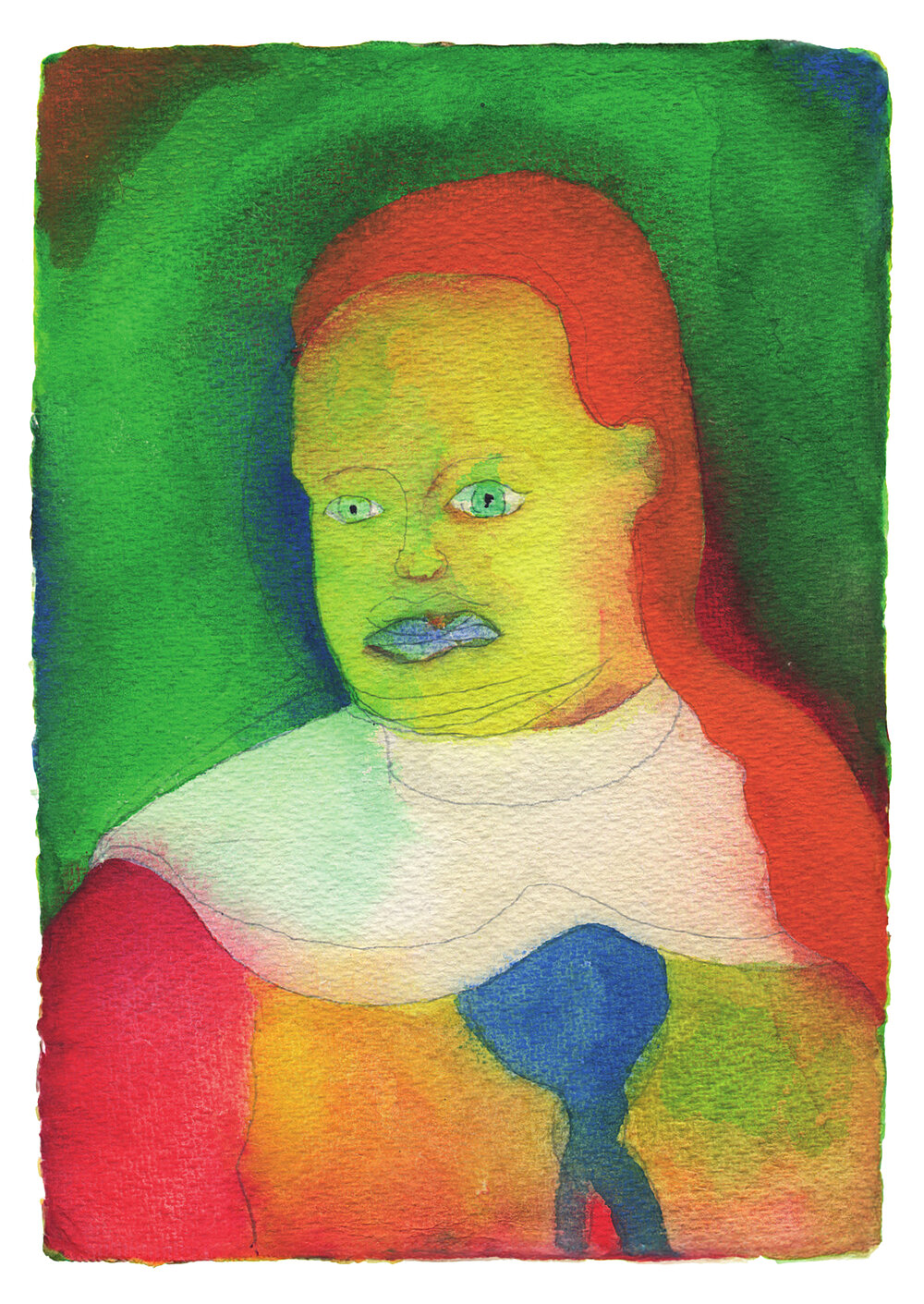
Gabriele (Elli)
Geboren: 22. September 1889 in Prag
Ausbildung: Besuch der Volksschule, anschließend Besuch einer deutschsprachigen Privatschule für Mädchen
Heirat: 27. November 1910 mit dem Geschäftsmann Karl Hermann (1883–1939)
Kinder: Felix (1911–1940), Gerti (1912–1972) und Hanna (1919–1942)
Deportation: 21. Oktober 1941 in das Getto Łódź gemeinsam mit Tochter Hanna, deren Ehemann sowie dessen Eltern; Tochter Gerti und ihr Mann konnten rechtzeitig nach Indien fliehen; Sohn Felix starb in einem französischen Internierungslager; 10. September 1942 Deportation in das Vernichtungslager Kulmhof (Chełmno); genauer Todestag unbekannt
»Sie war doch ein so schwerfälliges, müdes, furchtsames, verdrossenes, schuldbewußtes, überdemütiges, boshaftes, faules, genäschiges, geiziges Kind, ich konnte sie kaum ansehn, gar nicht ansprechen, so sehr erinnerte sie mich an mich selbst […]. Aber das alles änderte sich, als sie in jungen Jahren, das ist das Wichtigste, von zu Hause wegging, heiratete, Kinder bekam, sie wurde fröhlich, unbekümmert, mutig, freigiebig, uneigennützig, hoffnungsvoll.«
Franz Kafka, Brief an den Vater, 1919
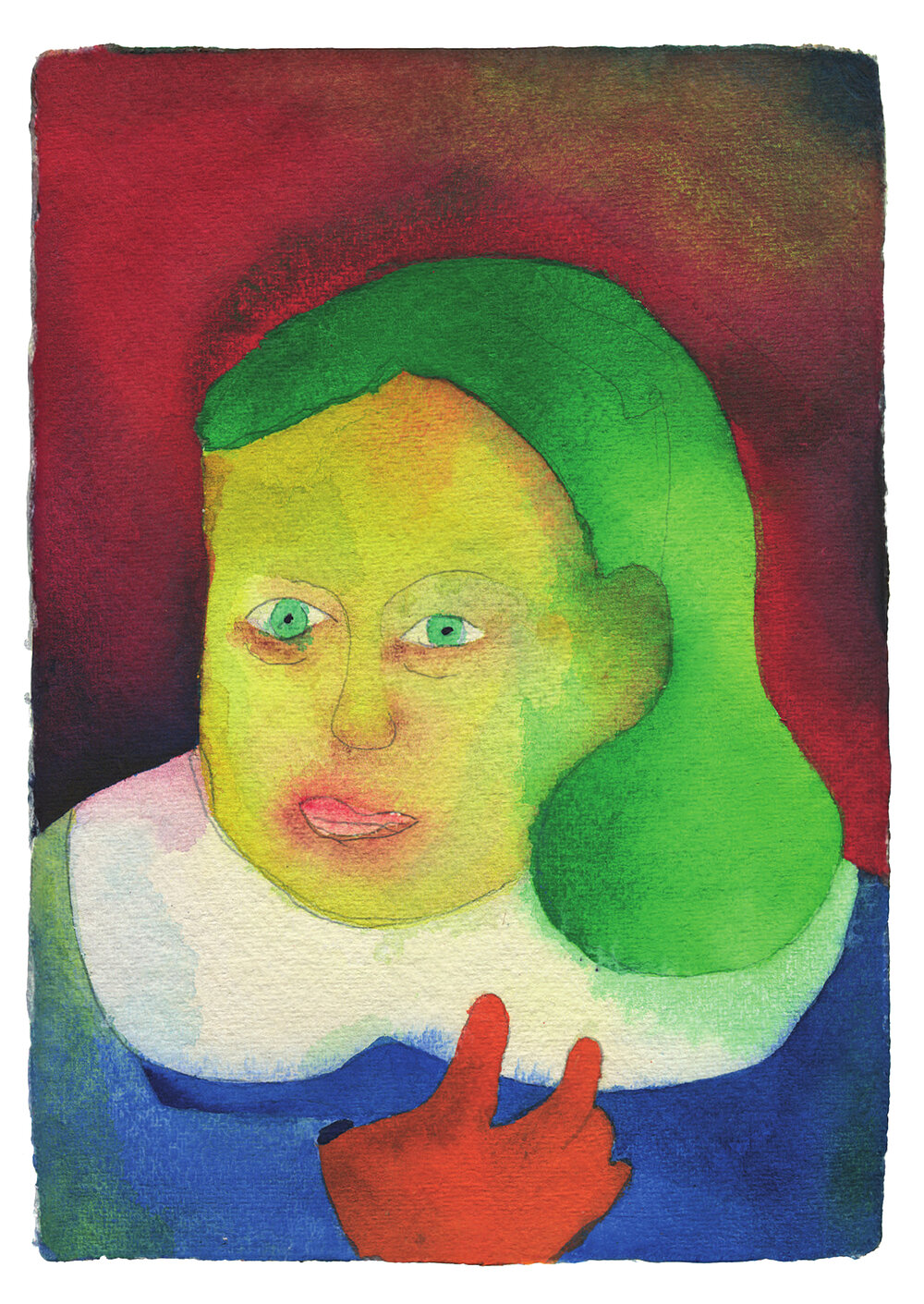
Ottilie (Ottla)
Geboren: 29. Oktober 1892 in Prag
Ausbildung: Schulbesuch wie die beiden älteren Schwestern, danach Mitarbeit im elterlichen Galanteriewarengeschäft; 1917: bewirbt sich an einer landwirtschaftlichen Frauenschule, geht stattdessen nach Zürau (Siřem), wo sie das Landgut ihres zum Militärdienst eingezogenen Schwagers Karl Hermann bewirtschaftet; 1918/19: Besuch der Landwirtschaftlichen Winterschule in Friedland (Frýdlant); 1920: Bewerbung für einen landwirtschaftlichen Vorbereitungskurs für Palästina in Opladen bei Köln
Heirat: 15. Juli 1920 mit dem Juristen Josef David (1893–1962); 1940: Ottla und ihr Mann trennen sich. Sie verliert den Schutz der „privilegierten Mischehe“.
Kinder: Věra (1921–2015) und Helene (1923–2005)
Deportation: 3. August 1942 in das Getto Theresienstadt, wo sie in einem Kinderheim arbeitet; 5. Oktober 1943: Ottla begleitet einen Transport polnischer-jüdischer Kinder in das Vernichtungslager Auschwitz-Birkenau, wo sie am 7. Oktober 1943 ermordet wird
»Es ist etwas ganz Unrichtiges, sein Leben in der Stadt, im Geschäft zuzubringen. Ich mache keine Pläne jetzt, aber Wünsche zu haben, kann man nicht verhindern. Keinen Augenblick würde ich zu dem Entschluss brauchen, mein ganzes Leben, hier oder anderswo am Land zuzubringen, nie mehr die Stadt zu sehen ….«
Ottla an Josef David, 20. August 1916

